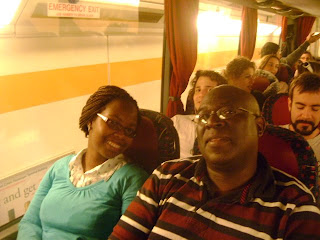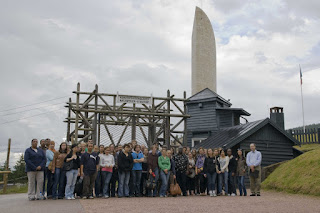Recently, there has been great debate in JA about the issue of hanging. As a current student, studying human rights I realised that there is a conflict, a struggle I just cannot grapple with in relation to how human rights advocates have treated the issue of human rights viz a vie the rights of the criminal. Notice I have not used the word defendant as when you are a criminal it means that you have been tried and convicted. Once you have been convicted I still believe that you should be treated humanely, that is you cannot be beaten willynilly or subjected to cruel conditions in prison if that is your sentence. But the issue is where do we draw the line. If the criminal has been correctly convicted what are his rights after conviction? Should he have rights in relation to his sentencing? How do we balance the rights of the victims either the loved ones of the deceased or those who live to recount the events.
I read Mr. Neita's Letter published in the Gleaner November 29, 2008, where he recounted his experience 30 years ago when he was face to face with the nuzzle of a gun when he and his other colleagues were robbed by a group of armed men. His article raised a few interesting points about whether or not Amnesty or Dr. Gomes had ever had any such traumatic experiences. Such a question in my mind raise the inference that since they have not had these experiences they cannot relate to the realities of the situation. It may even be argued that God forbid that any of them should go through a very cruelsome event and live to tell the tale they may have a different spin on many issues they now advocate on behalf of. Remember flo o'occoner where is she now?
It further begs the question of why is it that when we speak of the death penalty it is automatic that Human Rights Advocates think of cruel, inhuman treatment. Some even would like to say it is torture.
The trouble with such logic is that there has been no patent view by these advocates about how we should view on the other hand what the victims of these vicious attacks went through. I am sure that Mr. Neita would view what he experienced 30 years ago as cruel and inhuman. I am sure the little baby who several weeks ago was raped and murdered that such a situation is torture, cruel, and inhuman. I am sure that the plight of the over 900 persons who have been murdered viciously since the start of the year is more than cruel inhuman and degrading once we get into the nittygritty of how they were killed.
My country is getting into a cesspool of killings and tragedies that is stinking more and more as the day goes by. I agree that the Death Penalty may not solve all our problems. It will not solve the corruption problem (as we do not hang the corrupt), it will not solve our economic crisis, or the rise in truancy just to name a few of our problems. But we must start somewhere, since keeping them in horizon hotel (as Mr. Charles stated) is not solving one essential problem. Dr. Gomes and Amnesty apart from advocating for the rights of these criminals why not think about the victims on the flip side for a change. We need practical solutions to our problems and human rights is not a one sided coin. There are many players in the field, the nature of the law in this regard is that it is equal and applicable to all individuals and when you focus on the criminals in this regard what message are you sending to the victims of these henious crimes? What should the mothers, brothers, sisters, wives, husbands of this country who have lost their loved ones to the gun glean from your subliminal message? Certainly not one of hope.









